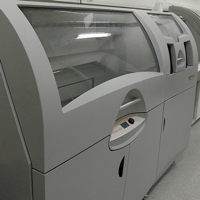According to the United Nations, today marks the birth of the world’s 7 billionth person, an event sure to cause great angst among the many surviving Malthusians who still believe that humanity’s ingenuity and the planet’s resources are both finite. But thanks to globalization’s continued advance and the modernization it enables, roughly four-fifths of humans live in societies with falling birth rates and half live in societies featuring lower than replacement-rate fertility. So we now know that the trajectory of global population growth will proceed somewhat more slowly toward our eighth and ninth billions, and that we may never reach the 10th.
Though such a plateau-ing of our species contradicts the procreation bias of all of the world’s major religions, it will nonetheless prove essential. With simultaneous revolutions arriving in the “NBIC” cluster of nanotechnology, biotechnology, information technology and cognitive sciences, humans will soon encounter a myriad of opportunities for significantly extending life expectancy -- in a world that’s already slated to see the number of elders quadruple from a half-billion in 2000 to 2 billion in 2050. Then there’s the currently explosive growth of the world’s middle class, which will raise living standards in today’s emerging economies -- and tomorrow’s.
Of course, more humans living far longer and enjoying far higher standards of living may seem like a Malthusian scenario, but only if we assume that the future global middle-class’ standard of living will inevitably require consumption levels comparable to those in the West. Yes, those new middle class-niks will want to eat better, travel more, live more comfortably, use more devices and technology, and so on. But that doesn’t mean all those goals must be achieved using the resource-utilization models of the past. That simply has not been the course that human progress has followed to date, and there is no reason to expect that similar future advances are not in the offing.

